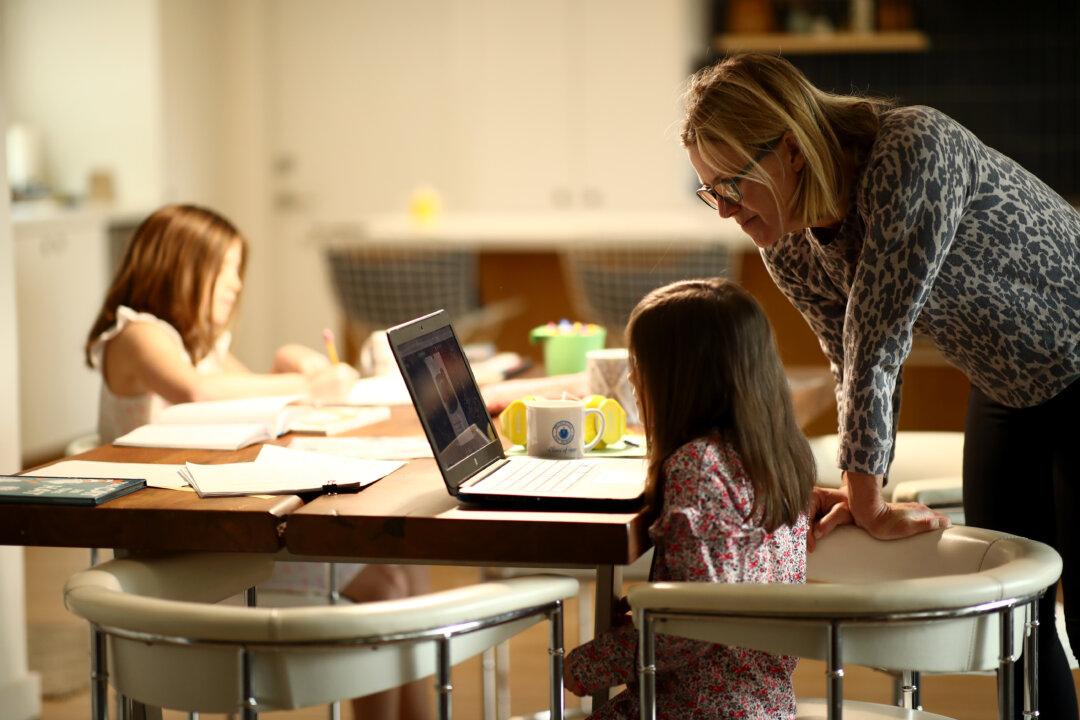Parents’ education levels are no barrier to achieving homeschooling success an expert said as record numbers of American families turn to the alternative education pathway seeking a safer more stable learning environment for their children amidst the pandemic.
Jeremy Newman, the Texas homeschool coalition’s public policy director, told The Epoch Times that it does not matter whether a parent has a GED or a Ph.D. Statistically, the homeschool parent’s education does not affect the outcomes of the students.






